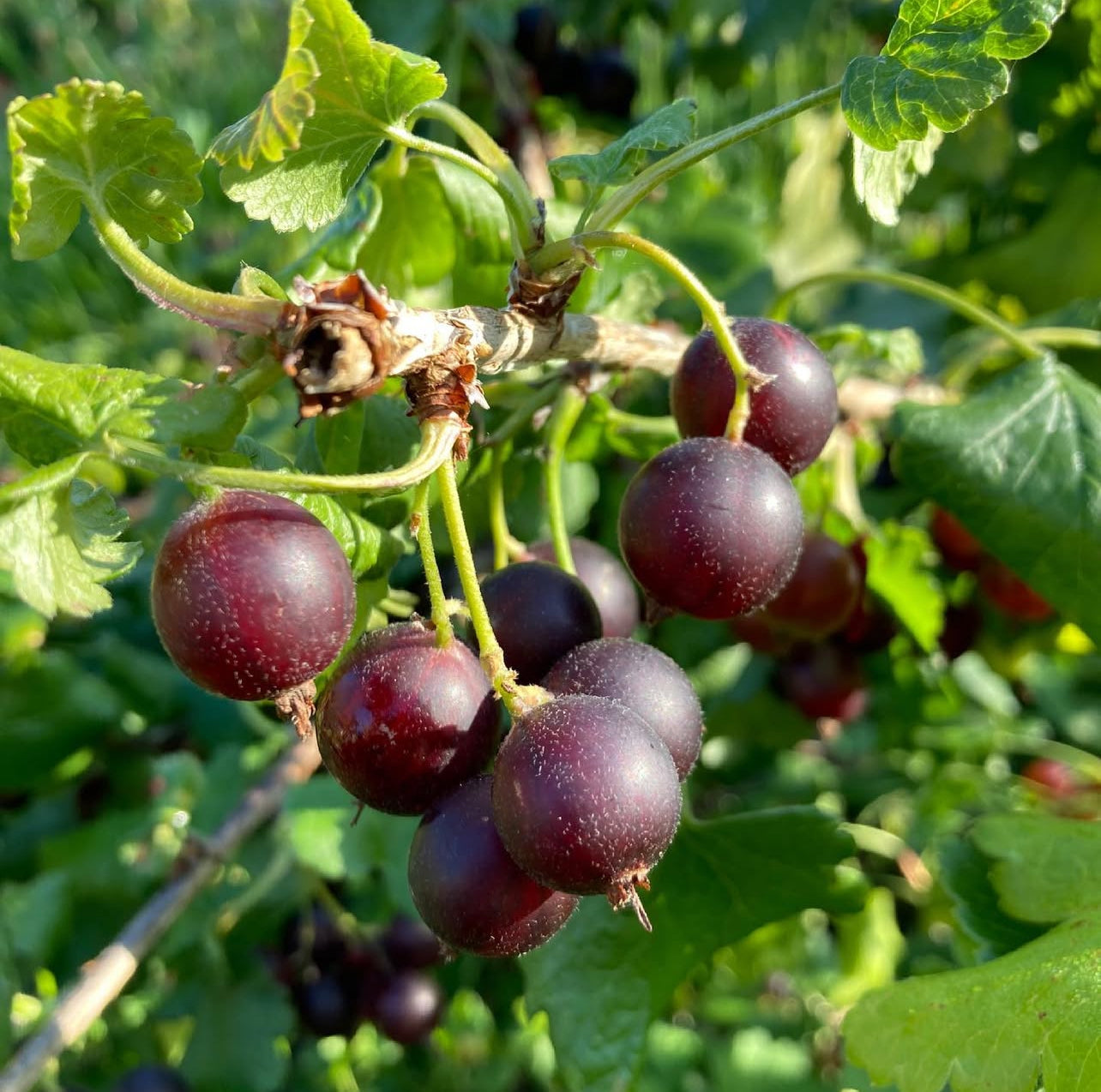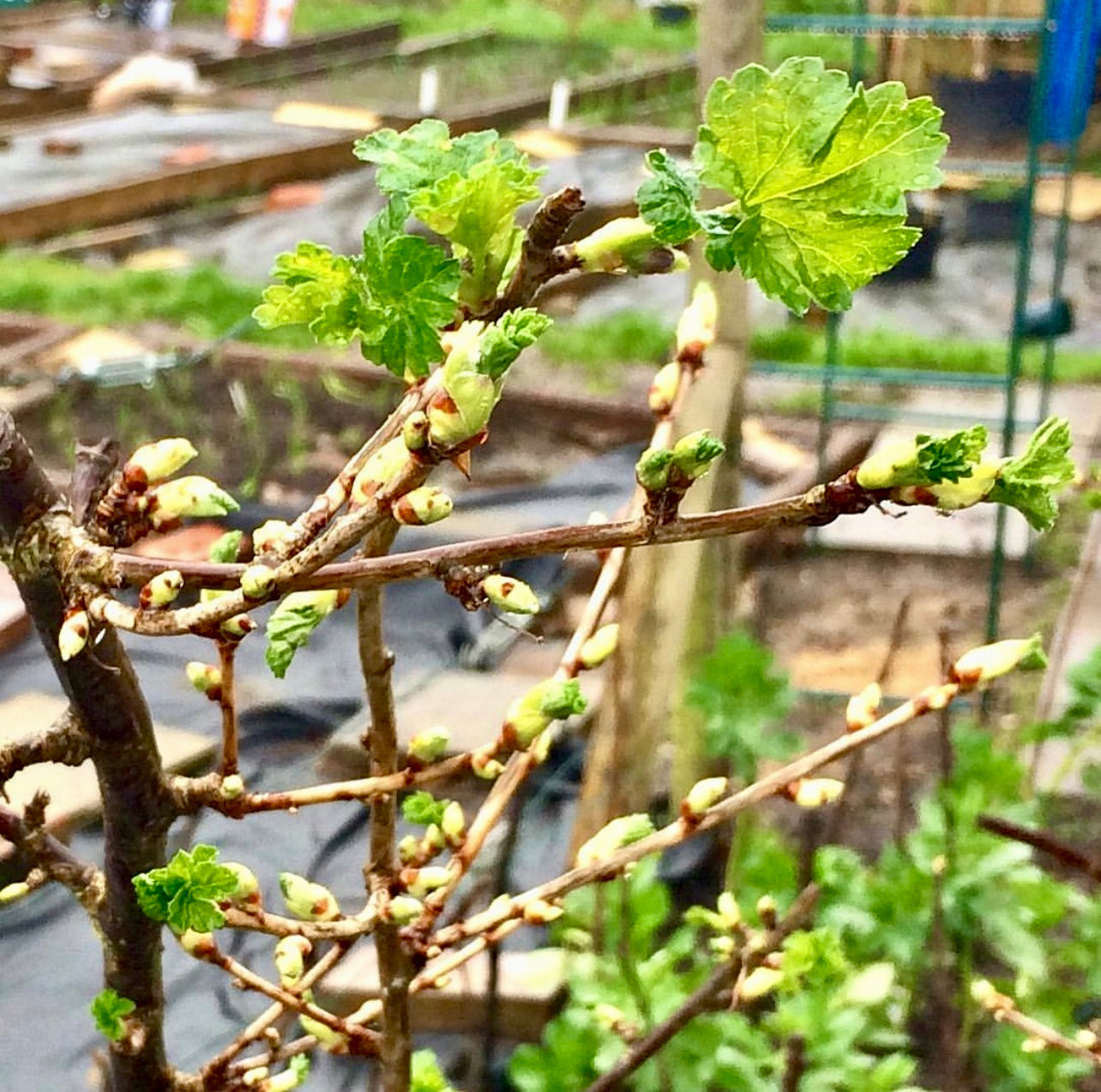Jostaberry (Ribes × nidigrolaria)
Jostaberry (Ribes × nidigrolaria)
Couldn't load pickup availability
Why We Grow It
Why We Grow It
Jostaberry is an excellent choice for food forests and permaculture systems due to its multifunctionality. Its berries provide a high-value food source for humans and wildlife, while its bushy habit creates habitat for birds and beneficial insects. The plant's adaptability to various soils and light conditions makes it a resilient and versatile component of diverse landscapes. Additionally, its mid-summer fruiting extends the harvest season, enhancing the productivity and biodiversity of any ecological design
How the Plant Grows
How the Plant Grows
Jostaberry shrubs grow vigorously, producing thornless canes that form a rounded shape. In spring, the plant produces small, inconspicuous flowers that attract pollinators. By mid to late summer, clusters of dark purple berries ripen, offering a reliable harvest. The plant is resistant to common pests and diseases, including powdery mildew and white pine blister rust, making it a low-maintenance option for growers
Plant Size
Plant Size
Size at Maturity- Shrub Layer. Grows to 4-6 feet tall and 4-6 feet wide
Current Size- Large 1'-2', 1 year old rooted cutting
Additional Info
Additional Info
The Jostaberry was first bred in Germany in the 20th century to combine the robust flavor and disease resistance of black currants with the productivity and easy-to-pick qualities of gooseberries. Its name is derived from "Johannisbeere" (black currant) and "Stachelbeere" (gooseberry). The berries are rich in vitamin C and antioxidants, making them a nutritious and delicious addition to the diet. In food forestry, Jostaberries provide a valuable mid-summer harvest, attract pollinators with their spring blooms, and support biodiversity
The Jostaberry, a unique hybrid of black currant (Ribes nigrum) and gooseberry (Ribes uva-crispa), combines the best traits of its parent plants. It produces abundant, deep purple berries with a sweet-tart flavor, ideal for fresh eating, jams, and baked goods. These cold-hardy shrubs thrive in temperate climates, making them a valuable addition to food forests, homesteads, and permaculture designs. With their resistance to common currant and gooseberry diseases, Jostaberries are a low-maintenance, productive choice for edible landscapes.
Share


Plant Highlights
-

Water
Moderate water needs; consistent moisture is ideal, especially during fruiting
-

Pollination
Self-fertile; planting multiple shrubs can improve yields
-

Soil
Prefers well-drained loamy soils with a slightly acidic to neutral pH (6.0-7.0)
-

Years to Bear
Produces fruit in 2-3 years after planting
-

Hardiness
Zone 3, tolerating temperatures as low as -40°C
-

Solar
Grows in partial shade to full sun, with optimal yields in full sun
Subscribe to our emails
Lots of Free Growing Info. Be the first to know about new plants and exclusive discounts.








